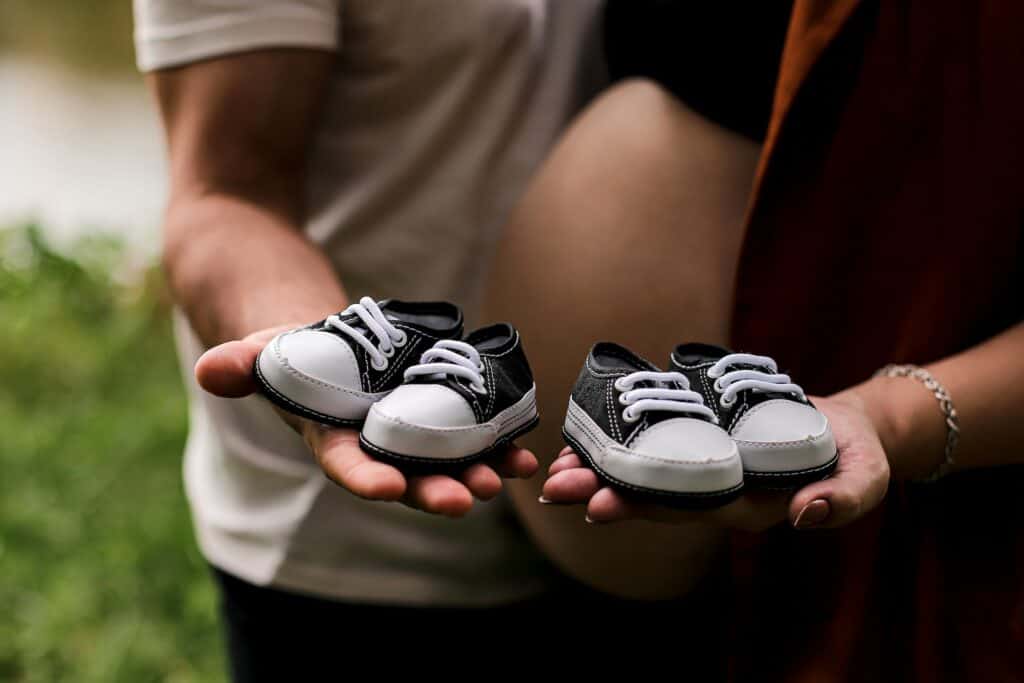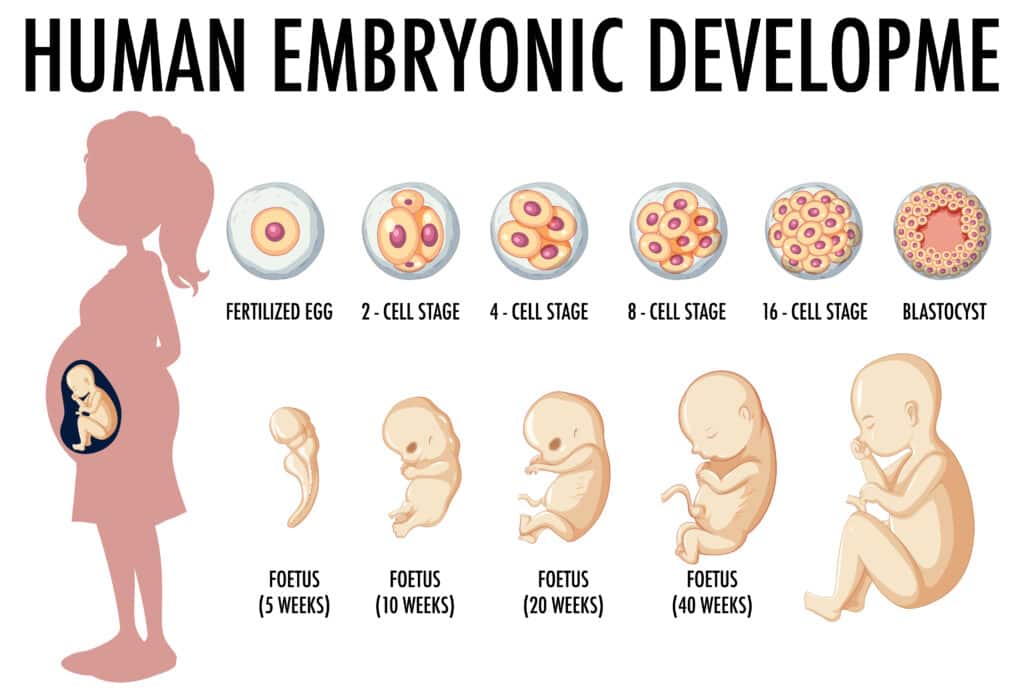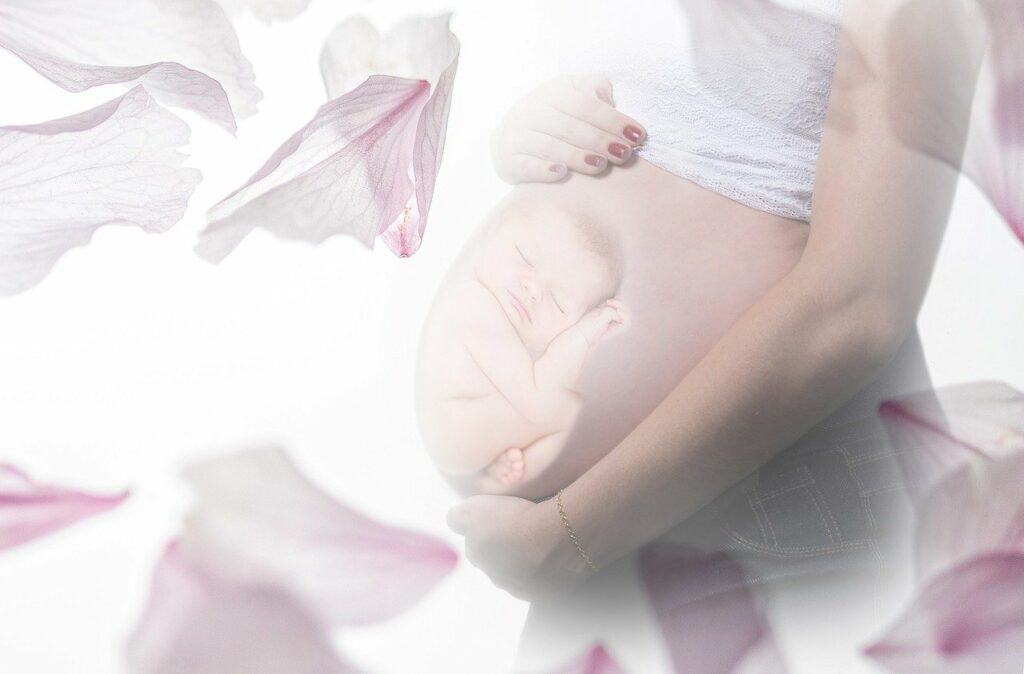Implantation bleeding is a common phenomenon that occurs in early pregnancy. It is a light spotting or discharge that happens when the fertilized egg implants itself into the uterine lining. While it is a normal occurrence, many women wonder is implantation bleeding heavier with twins.
Research suggests that implantation bleeding is not necessarily heavier with twins. However, there are some factors that can influence the amount of bleeding. For instance, women who have undergone fertility treatments or have a history of miscarriage may experience heavier bleeding. Additionally, the location of the embryo can also affect the amount of bleeding.
Key Takeaways
- Implantation bleeding is a normal phenomenon that occurs in early pregnancy.
- The amount of bleeding is not necessarily heavier with twins.
- Factors such as fertility treatments, history of miscarriage, and location of the embryo can influence the amount of bleeding.
Understanding Implantation Bleeding

Implantation bleeding is a common occurrence during early pregnancy. It is a light bleeding or spotting that occurs when the fertilized egg implants itself into the lining of the uterus. Implantation bleeding usually occurs around 6-12 days after conception, which is around the time when a woman would normally expect her period.
Implantation bleeding is often mistaken for a light period or spotting. However, there are some key differences between implantation bleeding and a period. Implantation bleeding is usually much lighter than a period and may only last for a few days. It is also usually a different color than a period. Implantation bleeding is often brown or pinkish in color, while a period is usually bright red.
It is important to note that not all women experience implantation bleeding. In fact, many women do not notice any bleeding at all during early pregnancy. Additionally, implantation bleeding does not always indicate a twin pregnancy. While some women may experience heavier implantation bleeding with twins, this is not always the case.
If you are experiencing any vaginal bleeding during pregnancy, it is important to speak with your healthcare provider. While implantation bleeding is usually harmless, there are other causes of vaginal bleeding that may require medical attention. Your healthcare provider can help determine the cause of your bleeding and provide appropriate treatment if necessary.
In summary, implantation bleeding is a light bleeding or spotting that occurs during early pregnancy. It is usually much lighter than a period and may only last for a few days. While some women may experience heavier implantation bleeding with twins, this is not always the case. If you are experiencing any vaginal bleeding during pregnancy, it is important to speak with your healthcare provider.
Implantation Bleeding Vs Regular Period

Implantation bleeding and regular period are two different things that women experience during their menstrual cycle. Implantation bleeding is a sign of pregnancy, while a regular period occurs when the uterus sheds its lining.
Implantation bleeding is usually lighter than a regular period. It is often mistaken for light spotting or discharge. Implantation bleeding occurs when the fertilized egg implants itself into the uterine lining. This process can cause some light bleeding or spotting.
On the other hand, a regular period is characterized by heavy bleeding. Menstrual blood is usually bright red and can last for several days. The amount of menstrual blood varies from woman to woman, but it is generally heavier than implantation bleeding.
It is important to note that heavy bleeding during implantation is not normal and may be a sign of a miscarriage. Women who experience heavy bleeding during implantation should seek medical attention immediately.
In summary, implantation bleeding is usually lighter than a regular period, and heavy bleeding during implantation is not normal. Women who experience heavy bleeding during implantation should seek medical attention immediately.
Symptoms of Implantation Bleeding

Implantation bleeding is a common occurrence during early pregnancy. It is a light spotting or discharge that occurs when a fertilized egg implants itself into the uterine wall. The amount of bleeding can vary from woman to woman and can be affected by various factors such as the number of embryos implanted, the location of the implantation, and the overall health of the mother.
Some of the symptoms of implantation bleeding include:
- Light spotting or discharge that occurs a few days after ovulation
- Pink or brownish color of the discharge
- Cramping or mild pain in the lower abdomen
- Headaches
- Breast tenderness
- Nausea
- Mood swings
It is important to note that not all women experience implantation bleeding, and those who do may not experience all of the symptoms listed above. Additionally, experiencing these symptoms does not necessarily mean that a woman is pregnant, as they can also be caused by other factors such as hormonal changes or stress.
If a woman suspects that she may be pregnant, it is important to consult with a healthcare provider to confirm the pregnancy and receive appropriate prenatal care.
Implantation Bleeding in Twin Pregnancy

Implantation bleeding is a common occurrence during pregnancy. It is a light spotting that occurs when the fertilized egg implants itself in the uterine lining. However, when it comes to twin pregnancy, many women wonder if implantation bleeding is heavier or more prolonged than in a singleton pregnancy.
According to medical experts, there is no conclusive evidence that implantation bleeding is heavier with twins than with a single baby. The amount of bleeding during implantation is not related to the number of babies in the womb.
However, some women may experience heavier implantation bleeding due to other factors such as hormonal imbalances or cervical irritation. It is also important to note that not all women experience implantation bleeding, and its absence does not necessarily indicate a problem with the pregnancy.
In the case of identical twins, there is a higher chance of experiencing bleeding during early pregnancy. This is because the fertilized egg splits into two embryos, and each embryo needs to implant itself in the uterine lining. This process can cause some bleeding and spotting.
It is important to monitor any bleeding during pregnancy, especially if it is heavy or accompanied by cramping or pain. Women should contact their healthcare provider immediately if they experience any of these symptoms.
Overall, while there is no conclusive evidence that implantation bleeding is heavier with twins, it is important to pay attention to any bleeding during pregnancy and seek medical attention if necessary.
Factors Influencing Implantation Bleeding
Implantation bleeding is a common occurrence during early pregnancy, but its severity can vary depending on several factors. Here are some of the factors that can influence the amount of bleeding during implantation:

1. Uterine Lining Thickness
The thickness of the uterine lining can affect the amount of bleeding during implantation. If the lining is thin, there may be less bleeding, while a thick lining can lead to heavier bleeding.
2. Blood Vessel Density
The density of blood vessels in the uterine lining can also affect the amount of bleeding during implantation. If there are more blood vessels, there may be more bleeding.
3. Hormonal Changes
Hormonal changes in the body can affect the thickness of the uterine lining and the density of blood vessels, which can in turn affect the amount of bleeding during implantation. Estrogen levels, in particular, play a crucial role in preparing the uterus for conception and implantation.
4. Number of Embryos
If a woman is carrying twins or multiples, there may be more bleeding during implantation due to the presence of more than one fertilized egg.

5. Timing of Implantation
The timing of implantation can also affect the amount of bleeding. If implantation occurs earlier than usual, there may be less bleeding, while a later implantation can lead to heavier bleeding.
In conclusion, implantation bleeding can vary in severity depending on several factors, including the thickness of the uterine lining, the density of blood vessels, hormonal changes, the number of embryos, and the timing of implantation.
When to Consult a Doctor
If a woman experiences heavy implantation bleeding, it is important to consult a healthcare provider or doctor. While light spotting is common during early pregnancy, heavy bleeding may be a sign of a medical emergency such as an ectopic pregnancy or miscarriage.
If a woman experiences any of the following symptoms, she should seek medical attention immediately:
- Heavy bleeding that soaks through a pad in less than an hour
- Passing large clots or tissue
- Severe cramping or abdominal pain
- Dizziness or fainting
- Shoulder pain
A healthcare provider or doctor may perform an ultrasound to determine the cause of heavy bleeding. In some cases, heavy implantation bleeding may be a sign of a twin pregnancy, but this is not always the case.
It is important to note that heavy bleeding does not always mean a miscarriage or ectopic pregnancy. However, it is always best to consult a healthcare provider or doctor to rule out any potential complications and ensure the health of the mother and baby.
In some cases, a midwife may also be consulted for guidance and support during early pregnancy.
Medical Examination and Tests

When a woman experiences implantation bleeding, it is important to seek medical attention to confirm pregnancy and rule out any potential complications. A doctor may perform a physical exam to check for any abnormalities in the reproductive system and order tests to confirm pregnancy.
The most common test used to confirm pregnancy is a urine pregnancy test, which detects the presence of the hormone human chorionic gonadotropin (hCG) in the urine. A positive pregnancy test indicates that a woman is pregnant, but it does not provide information about the number of fetuses.
To determine if a woman is carrying twins, an ultrasound is typically performed. During an ultrasound, sound waves are used to create an image of the uterus and the developing fetuses. This test can detect the presence of multiple gestational sacs and fetal heartbeats, indicating a twin pregnancy.
Blood tests may also be ordered to confirm pregnancy and monitor hCG levels. In a twin pregnancy, hCG levels may be higher than in a singleton pregnancy, but this is not always the case.
Scans may be ordered to monitor the growth and development of the fetuses and to check for any potential complications. These scans may include a nuchal translucency scan, which measures the thickness of the back of the fetal neck to screen for Down syndrome and other chromosomal abnormalities, and a fetal anatomy scan, which checks for any structural abnormalities in the fetuses.
In summary, medical examination and tests are necessary to confirm pregnancy and determine if a woman is carrying twins. A doctor may perform a physical exam, order a pregnancy test, ultrasound, blood tests, and scans to monitor the health and development of the fetuses.
Understanding Ectopic Pregnancy and Miscarriage

Ectopic pregnancy is a type of pregnancy where the fertilized egg implants outside the uterus, usually in the fallopian tube. This type of pregnancy is not viable and can be life-threatening for the mother if left untreated. Ectopic pregnancy can cause heavy bleeding and severe pain. It is important to seek medical attention immediately if you suspect you have an ectopic pregnancy.
Miscarriage, also known as pregnancy loss, is a common occurrence in the first trimester of pregnancy. It is estimated that up to 20% of pregnancies end in miscarriage. Miscarriage can be caused by a variety of factors, including genetic abnormalities, hormonal imbalances, and infections.
Both ectopic pregnancy and miscarriage can cause heavy bleeding and blood clots. However, it is important to note that not all cases of heavy bleeding are indicative of these conditions. It is important to consult a healthcare provider if you experience heavy bleeding during pregnancy.
In summary, ectopic pregnancy and miscarriage are both serious conditions that can cause heavy bleeding and pregnancy loss. It is important to seek medical attention if you suspect you have either of these conditions.
Related Posts:
Conclusion
In conclusion, there is no definitive answer to whether implantation bleeding is heavier with twins. While some studies suggest that women carrying twins may experience heavier implantation bleeding, others have found no significant difference in bleeding patterns between singleton and twin pregnancies.
It is important to note that implantation bleeding is a relatively rare occurrence and may be easily confused with other types of bleeding during pregnancy. It is always advisable to consult with a healthcare provider if bleeding or spotting occurs during pregnancy, regardless of whether twins are suspected.
Furthermore, while implantation bleeding may be a potential sign of a multiple pregnancy, it is not a reliable indicator on its own. Other factors, such as family history, maternal age, and fertility treatments, may also increase the likelihood of conceiving twins.
Overall, while there may be some anecdotal evidence to suggest that implantation bleeding is heavier with twins, more research is needed to confirm this association. In the meantime, women who suspect they may be carrying twins should discuss their concerns with a healthcare provider and undergo appropriate prenatal care to ensure the health of both mother and babies.
Frequently Asked Questions
Does implantation bleeding last longer with twins?
Implantation bleeding typically lasts for one to three days regardless of whether it is a singleton or twin pregnancy. However, in some cases, it may last longer.
Are clots common during implantation bleeding with twins?
Clots are not common during implantation bleeding, regardless of whether it is a singleton or twin pregnancy. If you experience heavy bleeding or clots, it is important to seek medical attention.
What are the signs of implantation bleeding with twins?
The signs of implantation bleeding with twins are similar to those of a singleton pregnancy. These may include light spotting, cramping, and mild abdominal pain.
Can heavy implantation bleeding indicate a twin pregnancy?
Heavy implantation bleeding is not necessarily an indication of a twin pregnancy. It is important to consult with a healthcare provider to determine the cause of the bleeding.
Is it possible to have implantation bleeding twice in a month with twins?
It is not common to have implantation bleeding twice in a month, regardless of whether it is a singleton or twin pregnancy. If you experience bleeding more than once a month, it is important to seek medical attention.
How long does implantation bleeding typically last with twins?
Implantation bleeding typically lasts for one to three days, regardless of whether it is a singleton or twin pregnancy. However, in some cases, it may last longer.

Iesha is a loving mother of 2 beautiful children. She’s an active parent who enjoys indoor and outdoor adventures with her family. Her mission is to share practical and realistic parenting advice to help the parenting community becoming stronger.
